Resources
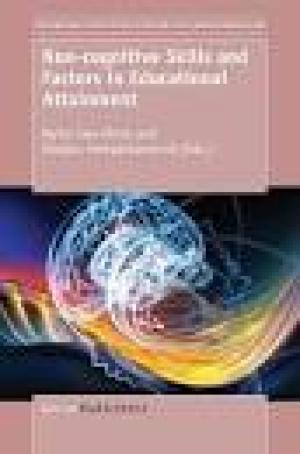
In the field of education, researchers firmly believe that non-cognitive skills and factors are equally or even more important than cognitive aspects in the educative process and for employment potentials. When identifying the personal qualities that are required to function well in the 21st century, the role of non-cognitive factors is often highlighted in the discourse. In recent years, increasing attempts have been made to investigate the role of non-cognitive factors in academic success. The notion of ‘non-cognitive’ has many phraseological collocations. Among frequently used collocations are constructs, traits, skills, abilities, variables, outcomes, attributes, and predictors. In addition, a myriad of other specific skills have been identified as non-cognitive. To name a few: grit, tenacity, curiosity, attitudes, self-concept, self-efficacy, anxiety, coping strategies, motivation, perseverance, confidence are among those frequently referred to in the literature. In some instances, non-cognitive factors are considered multifaceted. Some refer them to soft skills and personal characteristics that fall under the purview of affective domain. This book attempts to define non-cognitive traits, ways to measure them, impact of non-cognitive factors and how they can affect the positive outcomes in academic achievement, influence in employability, and success in social life. The information contained in this book provides knowledge growth and current thinking about non-cognitive factors and educational strategies that can be effectively used to nurture the well-being of individuals. (From the Publisher)
A document prepared by a committee working through the American Academy of Religion, that proposes a basic level of cultural competency that every graduate of a two- or four-year college should develop. It argues that some critical understanding about the ways in which religion shapes and is shaped by human behavior should be part of the general education of every person who receives an undergraduate degree.
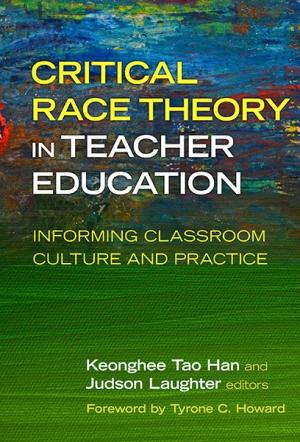
This important volume promotes the widespread application of Critical Race Theory (CRT) to better prepare K–12 teachers to bring an informed asset-based approach to teaching today’s highly diverse populations. Part I explores the tradition and longevity of CRT in teacher education. Part II, “Beyond Black and White,” expands CRT into new contexts, including LatCrit, AsianCrit, TribalCrit, QueerCrit, and BlackCrit. Part III looks beyond CRT to other epistemologies often dismissed in White conceptions of teacher preparation. Throughout the text, the authors collaborate across demographic lines to work together toward social justice and compassion. A closing chapter presents and synthesizes the lessons to be learned for teacher educators who want to prepare teachers to be agents of social change. (From the Publisher)
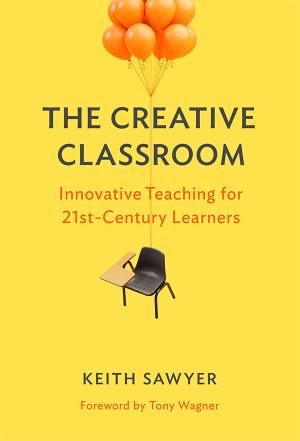
The Creative Classroom presents an original, compelling vision of schools where teaching and learning are centered on creativity. Drawing on the latest research as well as his studies of jazz and improvised theater, Sawyer describes curricula and classroom practices that will help educators get started with a new style of teaching, guided improvisation, where students are given freedom to explore within structures provided by the teacher. Readers will learn how to improve learning outcomes in all subjects—from science and math to history and language arts—by helping students master content-area standards at the same time as they increase their creative potential. This book shows how teachers and school leaders can work together to overcome all-too-common barriers to creative teaching—leadership, structure, and culture—and collaborate to transform schools into creative organizations. (From the Publisher)
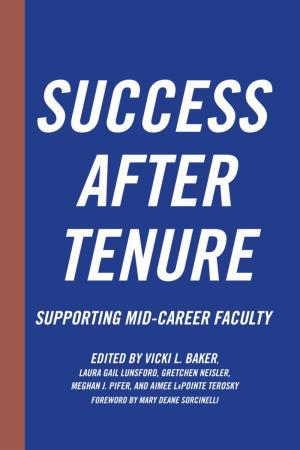
This book brings together leading practitioners and scholars engaged in professional development programming for and research on mid-career faculty members. The chapters focus on key areas of career development and advancement that can enhance both individual growth and institutional change to better support mid-career faculties. The mid-career stage is the longest segment of the faculty career and it contains the largest cohort of faculty. Also, mid-career faculty are tasked with being the next generation of faculty leaders and mentors on their respective campuses, with little to no supports to do so effectively, at a time when higher education continues to face unprecedented challenges while managing continued goal of diversifying both the student and faculty bodies. The stories, examples, data, and resources shared in this book will provide inspiration--and reality checks--to the administrators, faculty developers, and department chairs charged with better supporting their faculties as they engage in academic work. Current and prospective faculty members will learn about trends in mid-career faculty development resources, see examples of how to create such supports when they are lacking on their campuses, and gain insights on how to strategically advance their own careers based on the realities of the professoriate. The book features a variety of institution types: community colleges, regional/comprehensive institutions, liberal arts colleges, public research universities, ivy league institutions, international institutions, and those with targeted missions such as HSI/MSI and Jesuit. Topics include faculty development for formal and informal leadership roles; strategies to support professional growth, renewal, time and people management; teaching and learning as a form of scholarship; the role of learning communities and networks as a source of support and professional revitalization; global engagement to support scholarship and teaching; strategies to recruit, retain, and promote underrepresented faculty populations; the policy-practice connection; and gender differences related to key mid-career outcomes. While the authors acknowledge that the challenges facing the mid-career stage are numerous and varying, they offer a counter narrative by looking at ways that faculty and/or institutions can assert themselves to find opportunities within challenging contexts. They suggest that these challenges highlight priority mentoring areas, and support the creation of new and innovative faculty development supports at institutional, departmental, and individual levels. (From the Publisher)
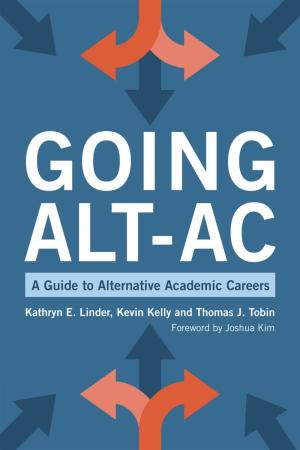
A growing number of people completing or holding graduate degrees now seek non-faculty positions—also called alternative academic, or “alt-ac” positions—at different stages in their careers. While an increasing number of people with doctoral degrees are hunting for a diminishing pool of tenure-track faculty jobs, most degree-granting institutions do not adequately prepare their graduate students to enter the new reality of the alt-ac job market. Yet the administrative ranks in higher education institutions are growing, as colleges and universities are creating a diverse range of positions that support teaching and learning efforts. Focusing on the range of potential alternative career choices, this highly practical book offers tools and prompts for readers who are: -Considering whether to choose an alt-ac career path -Seeking specific alt-ac positions -Advising graduate students or mentoring recent professional graduates -Encountering alt-ac career challenges The authors offer case stories—their own and those of colleagues across North America in alt-ac roles—with concrete examples designed to help readers pursue, obtain, and excel in a wide variety of alt-ac positions. The book can equally be used as a resource for graduate courses on professional development and job-market preparation. (From the Publisher)
A 2019 course by Christy Lang Hearlson at Villanova University adopts a practical theology approach ("a way of doing theology that attends to lived reality and practice, engages in interdisciplinary dialogue, and seeks to cultivate practical wisdom for life") to critical issues of contemporary life using the case study of "consumerism." The course has "a particular (but not exclusive) focus on Roman Catholicism."
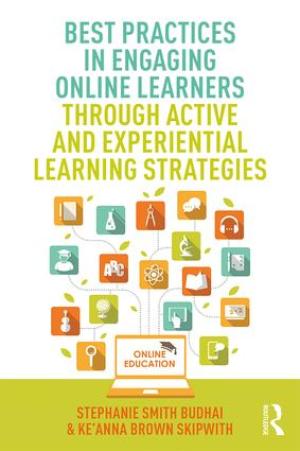
Click Here for Book Review Best Practices in Engaging Online Learners Through Active and Experiential Learning Strategies is a practical guide for all instructors and instructional designers working in online or blended learning environments who want to provide a supportive, engaging, and interactive learner experience. This book explores the integration of active and experiential learning approaches and activities including gamification, social media integration, and project- and scenario-based learning, as they relate to the development of authentic skill-building, communication, problem-solving, and critical-thinking skills in learners. Readers will find guidelines for the development of participatory peer-learning, cooperative education, and service learning opportunities in the online classroom. In addition, the authors provide effective learning strategies, resources, and tools that align learner engagement with course outcomes. (From the Publisher)
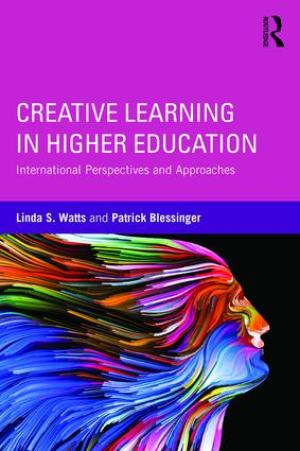
Click Here for Book Review This book provides higher education faculty and administrators a scholarly resource on the most salient aspects and emerging trends in creative learning in higher education today. International contributors explore ways to foster creativity in any student, regardless of academic discipline or demographic characteristics and demonstrate that creativity is a skill all students can and should learn. Chapters analyzes how different countries and cultures implement creative learning, exploring issues of instruction, assessment, and ultimately how these practices are transforming learning. This important book helps higher education professionals understand and cultivate creative learning across disciplines in any college and university setting. (From the Publisher)
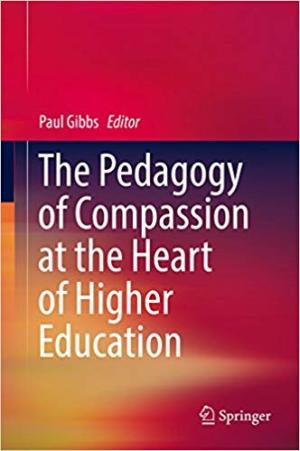
Click Here for Book Review This book offers a moral rather than instrumental notion of university education whilst locating the university within society. It reflects a balancing of the instrumentalization of higher education as a mode of employment training and enhances the notion of the students’ well-being being at the core of the university mission. Compassion is examined in this volume as a weaving of diverse cultures and beliefs into a way of recognizing that diversity through a common good offers a way of preparing students and staff for a complex and anxious world. This book provides theoretical and practical discussions of compassion in higher education, it draws contributors from around the world and offers illustrations of compassion in action through a number of international cases studies.
Wabash Center Staff Contact
Sarah Farmer, Ph.D.
Associate Director
Wabash Center
farmers@wabash.edu